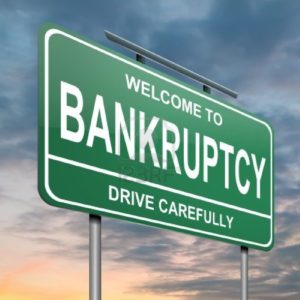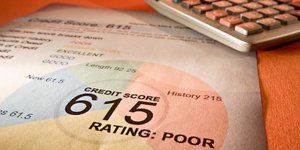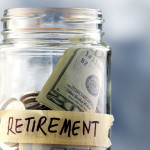 Today’s top story: Credit counseling for housing. Also in the news: What happens to your debt after you die, how to benchmark your net worth, and how to navigate five embarrassing money situations.
Today’s top story: Credit counseling for housing. Also in the news: What happens to your debt after you die, how to benchmark your net worth, and how to navigate five embarrassing money situations.
Credit Counseling for Housing: What It Is and What to Expect
You don’t have to go it alone.
Will Your Heirs Have to Pay Up When You Die With Debt?
Your creditors will be waiting.
How to Benchmark Your Net Worth In 3 Easy Steps
Taking stock.
How to Navigate 5 Embarrassing Money Situations
It happens to everyone.
 Bankruptcy isn’t the end of the world. It may even be good for you.
Bankruptcy isn’t the end of the world. It may even be good for you. Today’s top story: Debunking emergency fund myths. Also in the news: How filing separately could give some couples a lower tax bill, the financial benefits of living with less, and how much down payment you should have to buy a home.
Today’s top story: Debunking emergency fund myths. Also in the news: How filing separately could give some couples a lower tax bill, the financial benefits of living with less, and how much down payment you should have to buy a home. Today’s top story: Should you pay for credit repair? Also in the news: Tips on raising financially savvy kids, credit scores and dating, and why it might make sense to pay down debt slowly.
Today’s top story: Should you pay for credit repair? Also in the news: Tips on raising financially savvy kids, credit scores and dating, and why it might make sense to pay down debt slowly. Today’s top story: How leaving a 401(k) behind after a job change could cost you. Also in the news: A debt avalanche, the five best store credit cards, and money-saving tips for your next family vacation.
Today’s top story: How leaving a 401(k) behind after a job change could cost you. Also in the news: A debt avalanche, the five best store credit cards, and money-saving tips for your next family vacation.  Today’s top story: What is a debt snowball? Also in the news: A 1-week financial fast, why personal finance classes should be taught in college, and how your wallet is becoming the next tech platform.
Today’s top story: What is a debt snowball? Also in the news: A 1-week financial fast, why personal finance classes should be taught in college, and how your wallet is becoming the next tech platform. Today’s top story: The biggest tax mistake Millennials make. Also in the news: The 10 best Tax Day sales and freebies, the pros and cons of paying off debt early, and how to decide how big your emergency fund should be.
Today’s top story: The biggest tax mistake Millennials make. Also in the news: The 10 best Tax Day sales and freebies, the pros and cons of paying off debt early, and how to decide how big your emergency fund should be.  Every day we hear from people who are diligently paying down their student loans — and ignoring their retirement funds. This has got to stop.
Every day we hear from people who are diligently paying down their student loans — and ignoring their retirement funds. This has got to stop. Today’s top story: How to apply for a credit card after bankruptcy. Also in the news: Avoiding stress while paying down debt, the biggest tax “break” you shouldn’t forget, and how to slash your cable bill.
Today’s top story: How to apply for a credit card after bankruptcy. Also in the news: Avoiding stress while paying down debt, the biggest tax “break” you shouldn’t forget, and how to slash your cable bill.